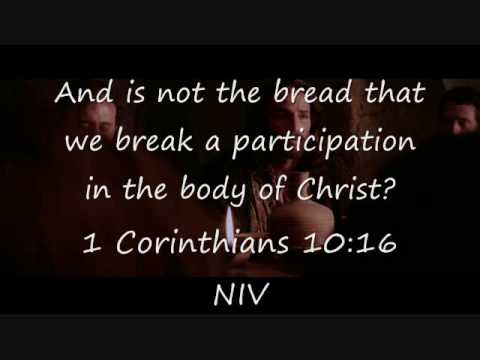
Should the church even be a community with each member giving something to it? The question underscores the challenge. Despite what I see as gains in recent years, the church is still largely viewed as a meeting to attend. The Bible (read “God”) sees it differently: the church is what believers in Christ together are. More radically, the church is the body of Christ.
Before I run on pontificating, let’s get to today’s text in our journey through 1 Corinthians (which, more extensively, is a journey through the New Testament).
ONE BODY, MANY MEMBERS
For just as the body is one and has many members, and all the members of the body, though many, are one body, so it is with Christ. For in one Spirit we were all baptized into one body–Jews or Greeks, slave or free–and all were made to drink of one Spirit. For the body does not consist of one member but of many (1 Corinthians 12:12-14).
With “[f]or”, Paul compares the diversity of spiritual gifts in the one church with the human body. The many-membered human body is one body. “ . . . so it is with Christ”; that is, with the church, the body of Christ.
How do diverse people–“Jews or Greeks, slaves or free”–become members of one church? Well, by completing a membership application and being approved by the elders. Right? Not really. Churches do that for legal reasons, but it’s not how people spiritually become members.
Well, then, by agreeing to the church’s doctrine? That’s crucial, but not according to Paul.
” . . . in one Spirit we were all baptized into one body . . . and all were made to drink of the one Spirit.”
By”baptism”–not in water, but “in one Spirit”. By “drinking” (or being filled with) that one Spirit. These are not two different experiences, but one, and refers to conversion or being born again.
God the Holy Spirit is the dynamic force of conversion. He “immerses” converts into the one body of Christ and is the one Spirit who fills (“drink”) all converts. For Paul, the unity of many members doesn’t center in doctrinal agreement (as important as that is) but in their common experience in the Holy Spirit. Yet, it is the same Holy Spirit who creates diversity: “For the body does not consist of one member but of many.”
DIVERSITY
If the foot should say, “Because I am not a hand, I do not belong to the body,” that would not make it any less a part of the body. And if the ear should say, “Because I am not an eye, I do not belong to the body,” that would not make it any less a part of the body. If the whole body were an eye, where would be the sense of hearing? If the whole body were an ear, where would be the sense of smell? But as it is, God arranged the members in the body, each one of them, as he chose. If all were a single member, where would the body be? (1 Corinthians 12:15-19).
Paul uses the diversity of the human body to point to the diversity of the body of Christ. Foot, hand, ear, eye–each has its different function, but all belong. Nor is the whole body composed of one member. Members differ, arranged as God willed.
Implication: so the body of Christ isn’t all tongues (the Corinthians exalted that gift above all others–see Chapter 14). Members of the body of Christ have diverse gifts as God chooses.
Sadly, talk like this seems irrelevant to many churches today. If they don’t deny spiritual gifts altogether, little time or place exists for them to be expressed. Thus the church is weakened, as is the human body if the legs are paralyzed or eyes blind. Or if, like the Corinthians, the church majors in one or two gifts to the exclusion of the others.
UNITY
As it is, there are many parts, yet one body. The eye cannot say to the hand, “I have no need of you,” nor again the head to the feet, “I have no need of you.” On the contrary, the parts of the body that seem to be weaker are indispensable, and on those parts of the body that we think less honorable we bestow the greater honor, and our unpresentable parts are treated with greater modesty, which our more presentable parts do not require. But God has so composed the body, giving greater honor to the part that lacked it, that there may be no division in the body, but that the members may have the same care for one another. If one member suffers, all suffer together; if one member is honored, all rejoice together (1 Corinthians 12:20-26).
The human body–with diverse parts, each necessary, including unpresentable parts treated with modesty–is a unity. Diversity (which Paul has just stressed) isn’t an end in itself; diversity must function in essential unity.
Paul personifies body-members. They “talk”! But none can say, “I don’t need you.” Perhaps certain church members with certain gifts oozed that attitude. “But God has so composed the body . . . ” He’s made no hierarchy of persons or of gifts.
Such hierarchy divides. “But God has so composed the body” so that there be no division. Here is where Paul draws the net tighter around the Corinthians. While it’s true a bad toothache makes you hurt all over or headache-relief makes you feel better all over, Paul is clearly implying that this should be true of the body of Christ–that ” . . . the members may have the same care for one another.”
SOUND-DOCTRINE CHURCHES
Sadly, what Paul appeals to as the church’s source of unity (namely, members’ common experience in the Holy Spirit) has become a source of division. The gulf between “charismatic” churches and non-charismatic churches is wide, with each largely caracituring the other.
That being said, I think it’s safe to observe that typically, “sound-doctrine churches” minimize the role of the Spirit. As if the Spirit only “gifts” intellectually, they “center-stage” preaching to the exclusion of Spirit-led worship and the expression of spiritual gifts. They find unity in doctrinal agreement, not experience in the Spirit (as Paul did).
So they often pass over an astounding miracle to be celebrated: God the Holy Spirit actually lives inside Christ’s converts to express himself through those converts for their common strengthening.
That upbuilding–that unity–can’t be programmed. Not by “professional” worship teams. Not by doctrinal statements. Certainly not by ecumenical movements. Only the Holy Spirit can do that. It’s up to us, then, to pray for the Spirit to sovereignly move upon us . . .


Recent Comments